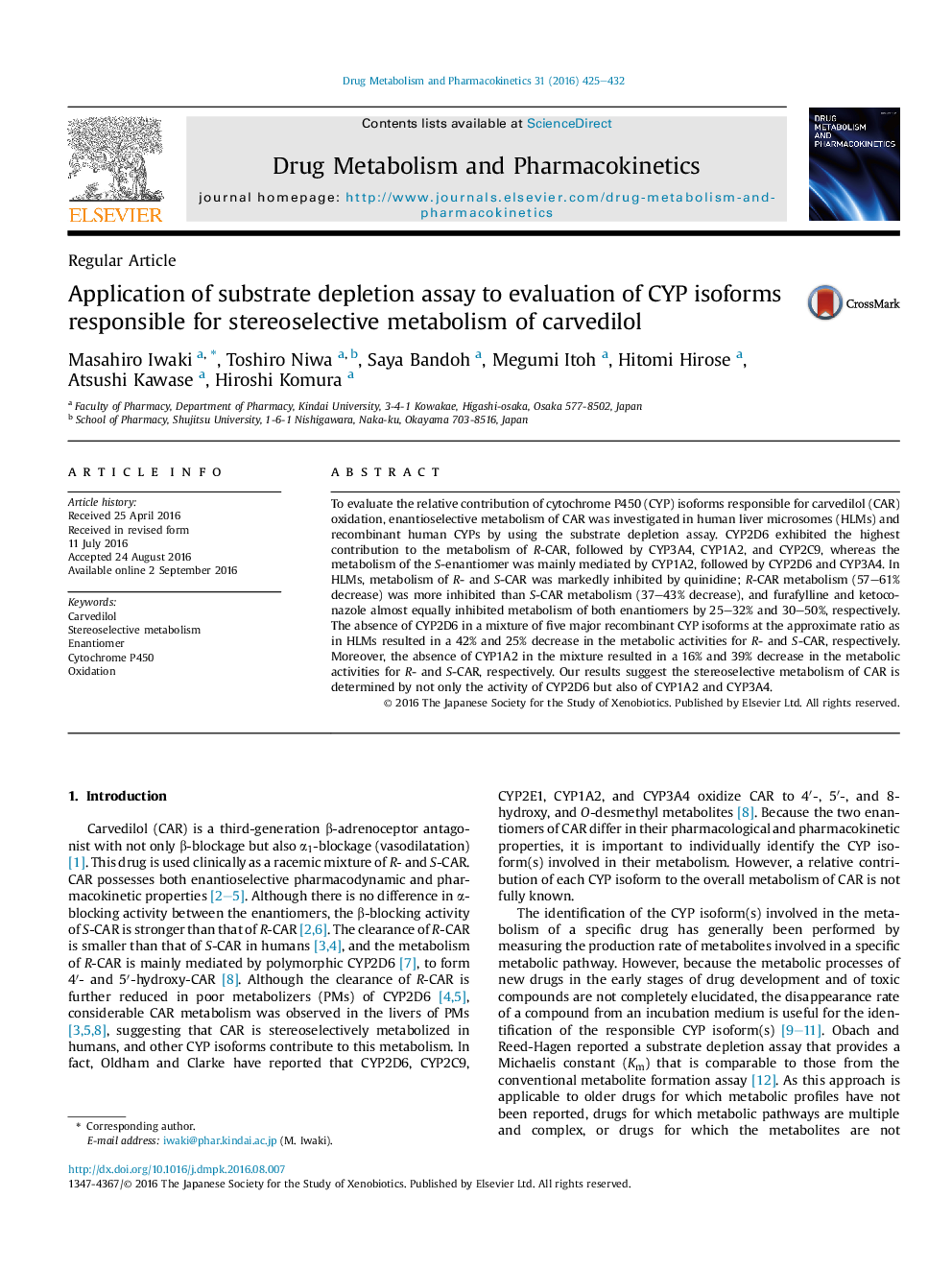| Article ID | Journal | Published Year | Pages | File Type |
|---|---|---|---|---|
| 5547162 | Drug Metabolism and Pharmacokinetics | 2016 | 8 Pages |
To evaluate the relative contribution of cytochrome P450 (CYP) isoforms responsible for carvedilol (CAR) oxidation, enantioselective metabolism of CAR was investigated in human liver microsomes (HLMs) and recombinant human CYPs by using the substrate depletion assay. CYP2D6 exhibited the highest contribution to the metabolism of R-CAR, followed by CYP3A4, CYP1A2, and CYP2C9, whereas the metabolism of the S-enantiomer was mainly mediated by CYP1A2, followed by CYP2D6 and CYP3A4. In HLMs, metabolism of R- and S-CAR was markedly inhibited by quinidine; R-CAR metabolism (57-61% decrease) was more inhibited than S-CAR metabolism (37-43% decrease), and furafylline and ketoconazole almost equally inhibited metabolism of both enantiomers by 25-32% and 30-50%, respectively. The absence of CYP2D6 in a mixture of five major recombinant CYP isoforms at the approximate ratio as in HLMs resulted in a 42% and 25% decrease in the metabolic activities for R- and S-CAR, respectively. Moreover, the absence of CYP1A2 in the mixture resulted in a 16% and 39% decrease in the metabolic activities for R- and S-CAR, respectively. Our results suggest the stereoselective metabolism of CAR is determined by not only the activity of CYP2D6 but also of CYP1A2 and CYP3A4.
Graphical abstractDownload high-res image (139KB)Download full-size image
